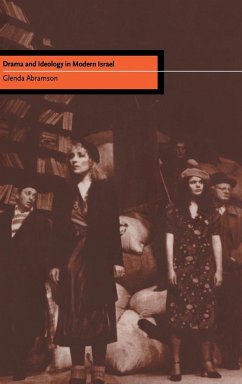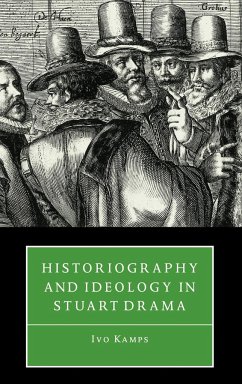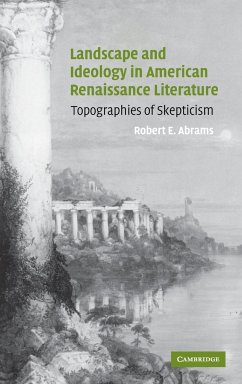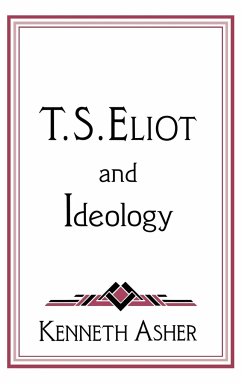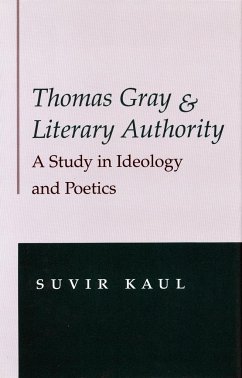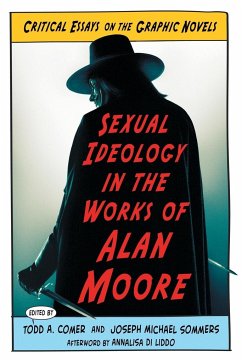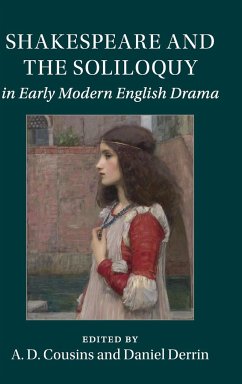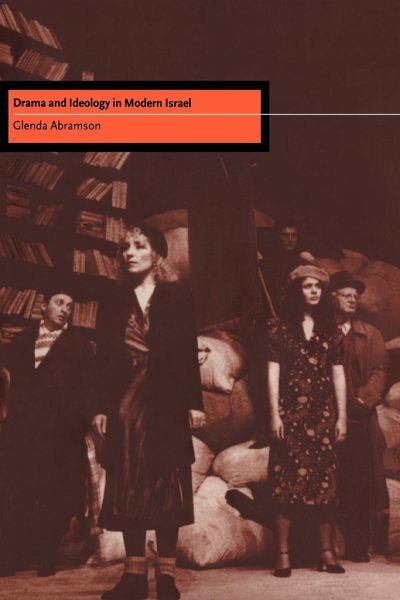
Drama and Ideology in Modern Israel

PAYBACK Punkte
22 °P sammeln!
An examination of political drama in modern Israel in relation to ongoing political and religious debates.A large number of political plays have been written in Israel over the past fifty years, and they are perceived, by audiences and critics alike, as major interventions in the country's ongoing political debates; the result is that Israeli drama is at the centre of many public controversies. In this first full-length study of Israeli political drama Glenda Abramson shows that during the early years of the State of Israel most of its intellectuals were identified with the 'official' state in...
An examination of political drama in modern Israel in relation to ongoing political and religious debates.
A large number of political plays have been written in Israel over the past fifty years, and they are perceived, by audiences and critics alike, as major interventions in the country's ongoing political debates; the result is that Israeli drama is at the centre of many public controversies. In this first full-length study of Israeli political drama Glenda Abramson shows that during the early years of the State of Israel most of its intellectuals were identified with the 'official' state interpretation of Zionism. After the Six-Day War in 1967 an influential group of playwrights, concerned with the evolution of Zionist ideology in the modern nation state, began to question the ethical basis of Zionism. Hanokh Levin, Yehoshua Sobol, Yosef Mundi, Miriam Kainy, Amos Kenan and others have gone on to examine Zionism as it affects contemporary Israeli society.
Review quote:
'Glenda Abramson's fascinating book traces Israel's history through its theatre - [it] is an important and well-written book, a 50-year-long history of a country as seen through the eyes of its playwrights and audiences. You hardly need anything else.' Jewish Chronicle
Table of contents:
Acknowledgments; Introduction; 1. The 'Enterprise' and its reinforcement in the drama of the 1950s; 2. Zionism on the stage: years of protest; 3. 'The Israeli-Palestinian War'; 4. Zionism on the stage: Sobol's case; 5. Hero's end; 6. The issue of religion; 7. The political uses of the Holocaust; 8. The Holocaust as political analogy; 9. Metaphor and mythology; 10. The vision of Hanokh Levin; Afterword; Notes; Select bibliography; Index.
A large number of political plays have been written in Israel over the past fifty years, and they are perceived, by audiences and critics alike, as major interventions in the country's ongoing political debates; the result is that Israeli drama is at the centre of many public controversies. In this first full-length study of Israeli political drama Glenda Abramson shows that during the early years of the State of Israel most of its intellectuals were identified with the 'official' state interpretation of Zionism. After the Six-Day War in 1967 an influential group of playwrights, concerned with the evolution of Zionist ideology in the modern nation state, began to question the ethical basis of Zionism. Hanokh Levin, Yehoshua Sobol, Yosef Mundi, Miriam Kainy, Amos Kenan and others have gone on to examine Zionism as it affects contemporary Israeli society.
Review quote:
'Glenda Abramson's fascinating book traces Israel's history through its theatre - [it] is an important and well-written book, a 50-year-long history of a country as seen through the eyes of its playwrights and audiences. You hardly need anything else.' Jewish Chronicle
Table of contents:
Acknowledgments; Introduction; 1. The 'Enterprise' and its reinforcement in the drama of the 1950s; 2. Zionism on the stage: years of protest; 3. 'The Israeli-Palestinian War'; 4. Zionism on the stage: Sobol's case; 5. Hero's end; 6. The issue of religion; 7. The political uses of the Holocaust; 8. The Holocaust as political analogy; 9. Metaphor and mythology; 10. The vision of Hanokh Levin; Afterword; Notes; Select bibliography; Index.





